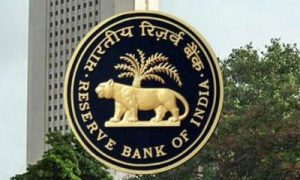Travel during the Covid-19 pandemic is a risky affair. Not only travel, the nationwide lockdown imposed to control the pandemic has crippled other non-essential sectors as well, causing job loss and further dwindling of demand, resulting in sluggish economic growth.
To boost the demand of non-essential products having higher GST, the government has proposed the LTC Cash Voucher Scheme, in which beneficiaries will get cash in lieu of Leave Travel Concession (LTC) on purchase of such goods.
Apart from inducing demand for non-essential goods like car, bike, AC, refrigerator, washing machine, computer and other consumer durable items, the aim of the scheme is to hike the GST collection, which has got affected by the Covid-19 lockdown.
Under the scheme, employees have been categorised in three LTC slabs – Rs 6,000 per person for those who are entitled to travel in trains, Rs 20,000 per person for those who are entitled for air travel in economy class and Rs 36,000 per person for those who are entitled for air travel in business class.
The reimbursement amount would be the aggregate LTC, which is determined by slab rate multiplied by the number of family members (including the employee) and leave encashment on spending an amount equal to three times the aggregate LTC amount and the leave encashment on purchasing goods having GST rate of 12 per cent or more.
So, if you are eligible to avail benefit of the scheme, you have to keep in mind that you spend the money in purchasing goods having Goods and Services Tax (GST) of 12 per cent or more and positively collect the GST Receipt / GST Invoice to get claim the reimbursement amount.
As the GST rate of 12 per cent, 18 per cent or 28 per cent are quite substantial, there is a tendency to save the tax by paying in cash and not taking a proper GST Receipt.
But remember, if you try to save the GST amount by paying in cash and taking an improper receipt (kuchcha rasid), you will not be able to apply for reimbursement which would vary around 45 per cent – 33 per cent on aggregate LTC spend plus the leave encashment that depend on salary slab.
So, on purchasing perfumes, ACs, dish washing machines, washing machines, refrigerators, vacuum cleaners, cars and two-wheelers etc, the beneficiaries have to pay the government first the GST of 28 per cent to get the additional reimbursement of around 27 per cent.





































